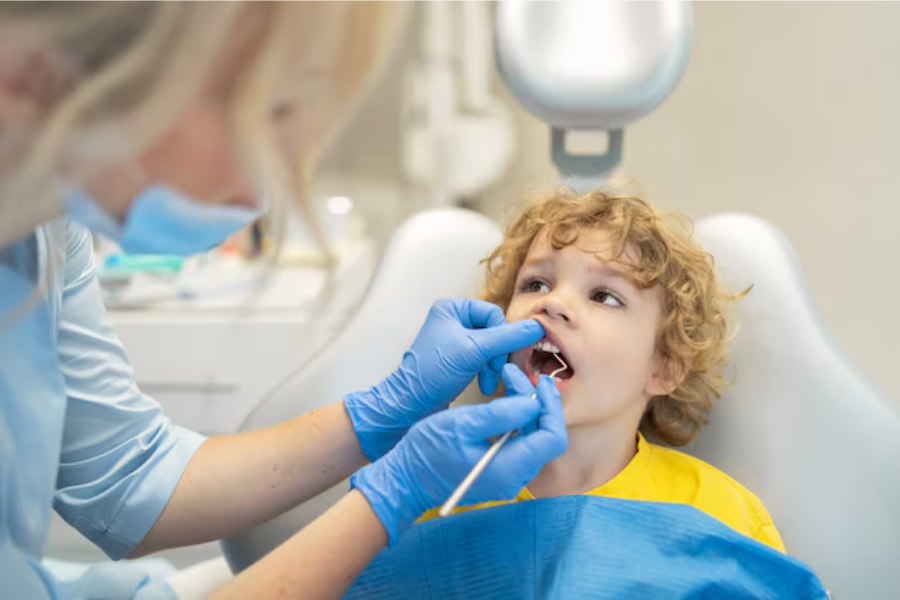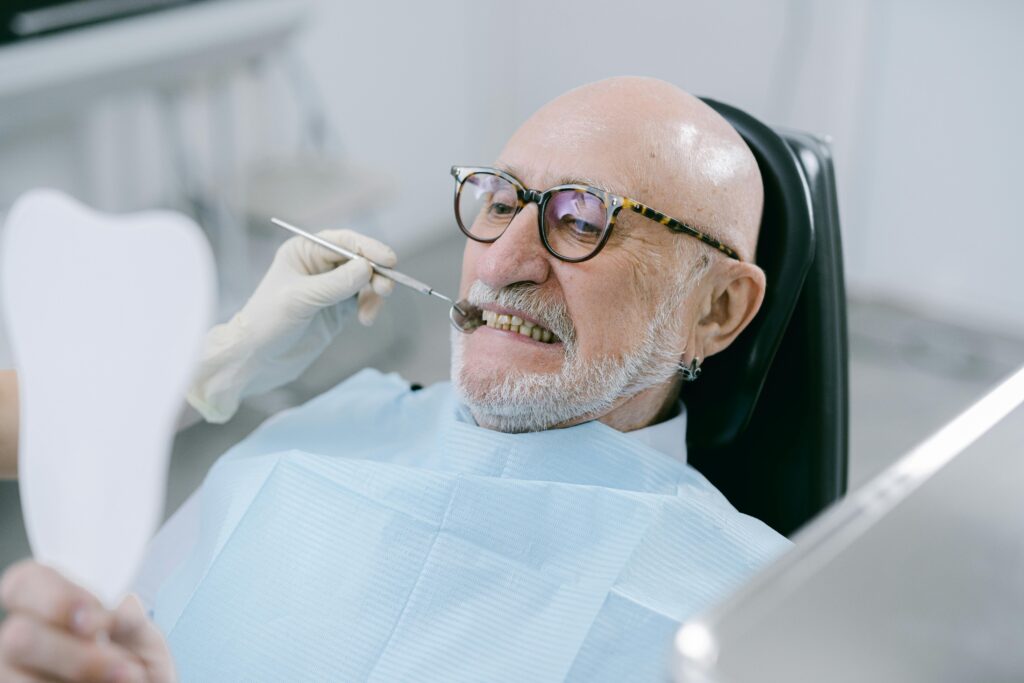Ensuring that your child has healthy teeth and gums is essential for their overall well-being. As a parent, you play a vital role in shaping your child’s oral hygiene habits. Teaching them proper oral care from an early age sets the foundation for a lifetime of healthy smiles. In this blog, we’ll explore top tips for parents to ensure proper oral care for child dentistry.
1. Start Oral Care Early
Oral care for children should begin even before their first tooth emerges. Parents can clean an infant’s gums with a soft, damp cloth to remove bacteria. Once the first tooth appears, usually around six months of age, start brushing it gently with a small, soft-bristled toothbrush and water.
Tip:
- Avoid using toothpaste for babies under two years old unless recommended by a dentist. For children above two, use a fluoride toothpaste in a pea-sized amount.
2. Make Brushing Fun
Brushing doesn’t have to be a chore. Making oral care fun can encourage kids to develop good brushing habits. Use colorful toothbrushes, play their favorite songs during brushing time, or let them choose their toothbrush and toothpaste flavor.
Tip:
- Introduce a brushing chart or reward system to motivate kids to brush twice daily.
3. Teach Proper Brushing Technique
Many kids tend to rush through brushing or miss certain areas of their mouths. Teaching your child the right brushing technique is crucial. Show them how to hold the toothbrush at a 45-degree angle to the gums and brush in gentle circular motions.
Tip:
- Ensure they brush for at least two minutes, covering all surfaces of their teeth.
4. Don’t Forget to Floss
Flossing is just as important as brushing. Once your child’s teeth start touching, it’s time to introduce flossing. Flossing helps remove food particles and plaque from between the teeth and along the gumline, where a toothbrush cannot reach.
Tip:
- Use child-friendly flossers to make flossing easier and more enjoyable.
5. Limit Sugary Snacks and Drinks
Sugary foods and drinks can cause tooth decay. Limiting your child’s intake of sweets, candies, and sugary beverages like sodas and fruit juices can help protect their teeth. Instead, offer healthier snacks such as fruits, vegetables, and cheese, which are better for their oral health.
Tip:
- Encourage your child to drink water instead of sugary drinks to help wash away food particles and bacteria.
6. Schedule Regular Dental Checkups
Taking your child to the dentist regularly is essential for maintaining good oral health. Dental checkups allow the dentist to catch any potential issues early and provide professional cleaning to keep your child’s teeth healthy.
Tip:
- Schedule your child’s first dental visit by their first birthday or within six months of their first tooth emerging.
7. Be a Role Model
Children learn by observing their parents. If they see you prioritizing your oral health, they’re more likely to adopt similar habits. Brush and floss your teeth together as a family to make oral care a shared activity.
Tip:
- Explain the importance of oral hygiene in simple terms so your child understands why they need to brush and floss.
8. Use Fluoride for Strong Teeth
Fluoride is essential for preventing tooth decay and strengthening enamel. Ensure your child gets the right amount of fluoride through toothpaste, mouthwash (for older kids), or even fluoridated water.
Tip:
- Talk to your dentist about fluoride treatments if your child is at high risk for cavities.
9. Address Dental Anxiety
Some kids may feel anxious or scared about visiting the dentist. To help reduce dental anxiety, prepare your child by explaining what to expect during a dental visit. You can also choose a pediatric dentist who specializes in making children feel comfortable.
Tip:
- Bring your child’s favorite toy or blanket to the dental appointment to provide comfort.
10. Encourage Healthy Habits
Incorporate oral hygiene into your child’s daily routine. Create a consistent schedule for brushing and flossing so it becomes a natural part of their day. Encourage them to brush after meals and before bedtime.
Tip:
- Use timers or brushing apps to make brushing more engaging and ensure they’re brushing for the recommended time.
11. Protect Teeth During Sports
If your child participates in sports, ensure they wear a mouthguard to protect their teeth from injuries. Mouthguards are essential for preventing dental trauma during contact sports like soccer, basketball, and football.
Tip:
- Consult your dentist for a custom-fitted mouthguard for better protection and comfort.
12. Teach Kids About the Consequences of Poor Oral Hygiene
It’s important for children to understand the consequences of not taking care of their teeth. Explain how cavities, gum disease, and tooth loss can affect their health and confidence.
Tip:
- Use kid-friendly educational videos and books to teach them about oral health in a fun and engaging way.
13. Encourage Healthy Eating Habits
A balanced diet plays a significant role in oral health. Teach your child to eat a variety of nutritious foods that promote strong teeth and gums. Foods rich in calcium, like milk and yogurt, help strengthen teeth, while crunchy fruits and vegetables help clean teeth naturally.
Tip:
- Limit acidic foods and beverages that can erode tooth enamel.
14. Monitor Oral Habits
Thumb sucking and pacifier use can affect the alignment of your child’s teeth. If your child continues these habits beyond the age of three, gently encourage them to stop.
Tip:
- Reward your child for avoiding these habits to make the transition easier.
15. Encourage Questions and Curiosity
Children are naturally curious, and they may have questions about their oral health. Encourage them to ask questions and provide answers in a way they can understand. This will help them feel more responsible for their own oral care.
Tip:
- Turn oral care into a learning experience by explaining the purpose of each step in their routine.
Final Thoughts
Proper oral care for kids starts with guidance from parents. By starting early, making oral hygiene fun, and being consistent, you can help your child develop healthy habits that will last a lifetime. Regular dental checkup, a balanced diet, and teaching proper techniques are all essential components of maintaining your child’s oral health. With these tips, you can ensure that your child grows up with a healthy, confident smile.




